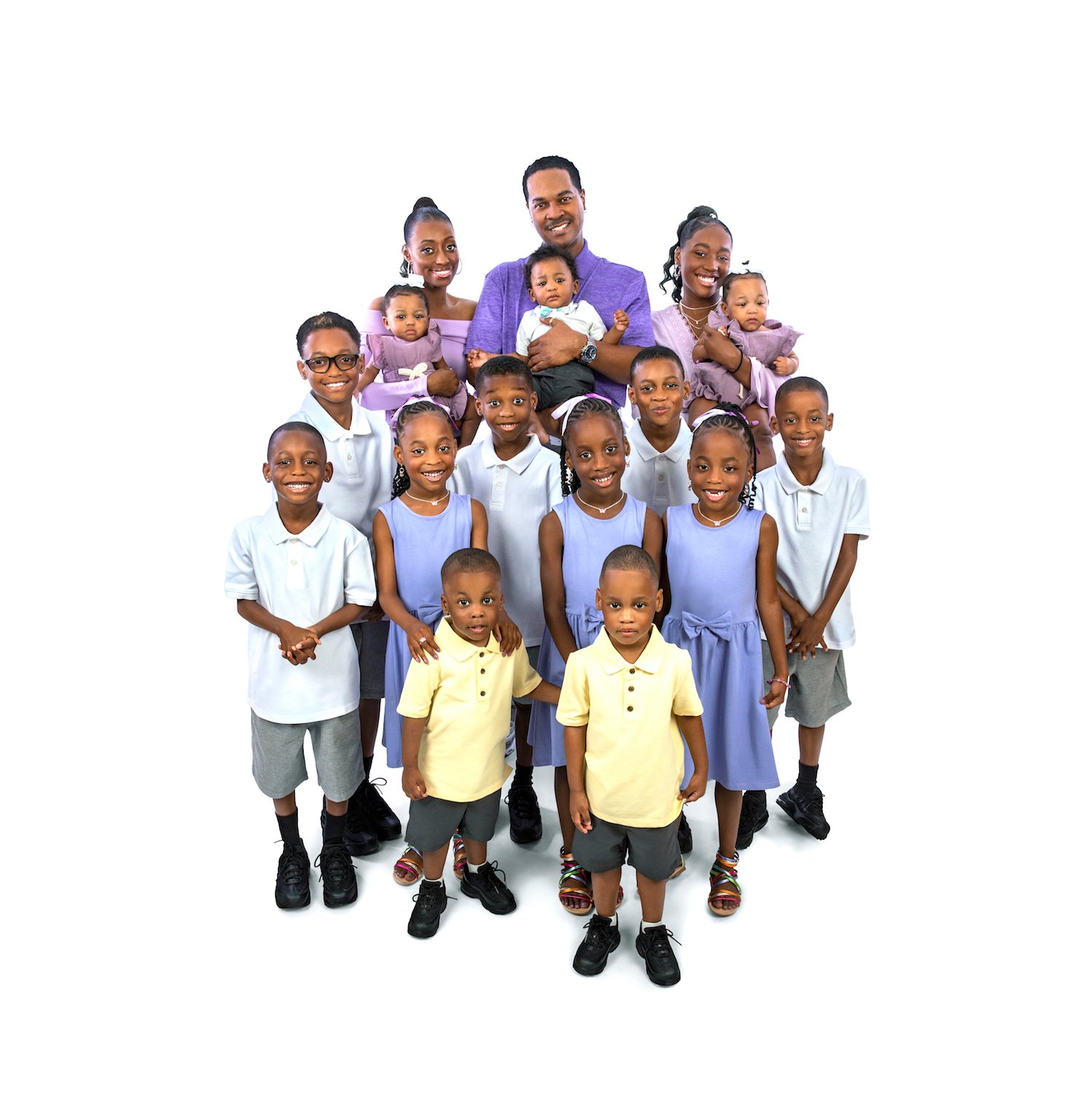‘Doubling Down With the Derricos’: Did Deon and Karen Derrico Use IVF to Have Their 14 Kids?
The Derricos are TLC’s newest super-sized family. Not only do Karen and Deon Derrico have 14 kids, but they have multiple sets of multiples. In addition to two singletons, the Las Vegas couple are parents to quintuplets, triplets, twins, and “triplins” — their name for the two surviving babies from a set of triplets, one of whom died just after birth. What might be even more astonishing is that all those kids you see on Doubling Down With the Derricos were born without the help of IVF.
Karen Derrico says all her kids were conceived naturally

Karen and Deon always knew they wanted to have a large family. But they weren’t necessarily expecting to have 14 kids. After giving birth to their first child, a daughter named Darian, Karen lost two pregnancies.
“After our oldest, I had two miscarriages,” she explained in the show’s premiere episode “And so, once I became pregnant, the doctor started me on Progesterone to sustain my pregnancy. But all of our children were naturally conceived. Not one round of IVF.”
Multiple runs in both Karen and Deon’s families
Eventually, Karen became pregnant again and gave birth to son Derrick. After that, things got a little wild. There’s a history of multiple births on both sides of the family, and Karen and Deon soon found themselves more blessed than they could have imagined.
“We’ve had four sets of multiples back to back,” Karen said. “I’ve been pregnant six times, and all of my children were naturally conceived.”
The couple is well aware of how unusual it is to have so many multiples.
“It’s like getting struck by lightning while getting struck by lightning,” Deon said of the family’s experience.
Karen has four sets of twins on her mom’s side and two sets of triplets on her dad’s side, she told South Carolina’s Live 5 News in 2019. Deon’s mom had a triplet pregnancy but miscarried, while his grandmother’s brother has two sets of twins.
How common are multiple pregnancies?
Multiple pregnancies are rare, making up about 3 in every 100 births, according to Stanford Children’s Health. But several factors increase the chances of having twins, triplets, or quints.
A family history of multiples, being older than 30, and having previous multiple pregnancies all increase the liklihood of a future multiple pregnancy. Race is also a factor, with African American women more likely to have twins than women of other races.
High-order multiple births are especially rare. In 2018, there were 3,400 triplet births and 115 quadruplet births in the U.S., according to the CDC. That same year, just 10 women gave birth to quintuplets or higher-order sets of multiples.
An increase in the use of assisted reproductive technology means more women are giving birth to twins, triplets, and quadruplets than in the past, according to Stanford. But conceiving higher-order multiples naturally is relatively uncommon. Though twins occur in about 1 in every 250 pregnancies, according to the American Society for Reproductive Medicine, the odds of having triplets is about 1 in 10,000. Quadruplets occur in about 1 in 700,000 pregnancies.
Doubling Down With the Derricos airs Tuesdays on TLC at 10/9c.


